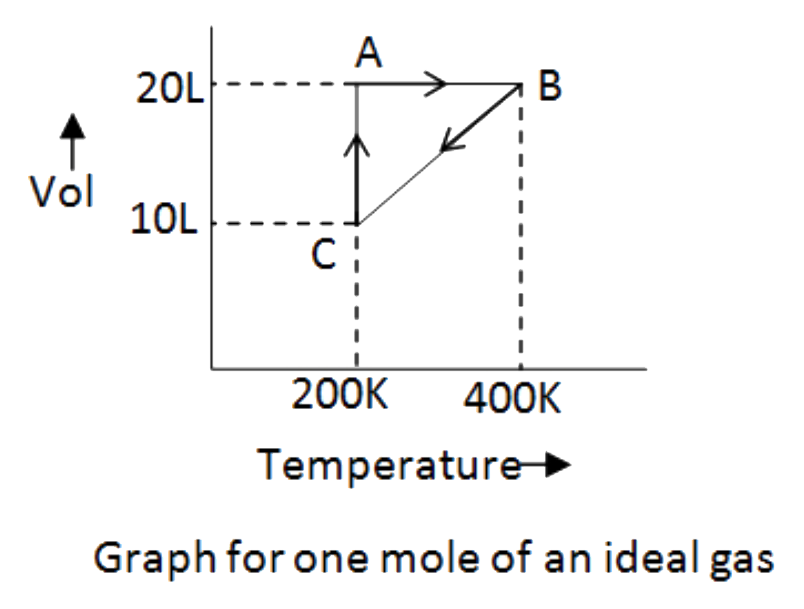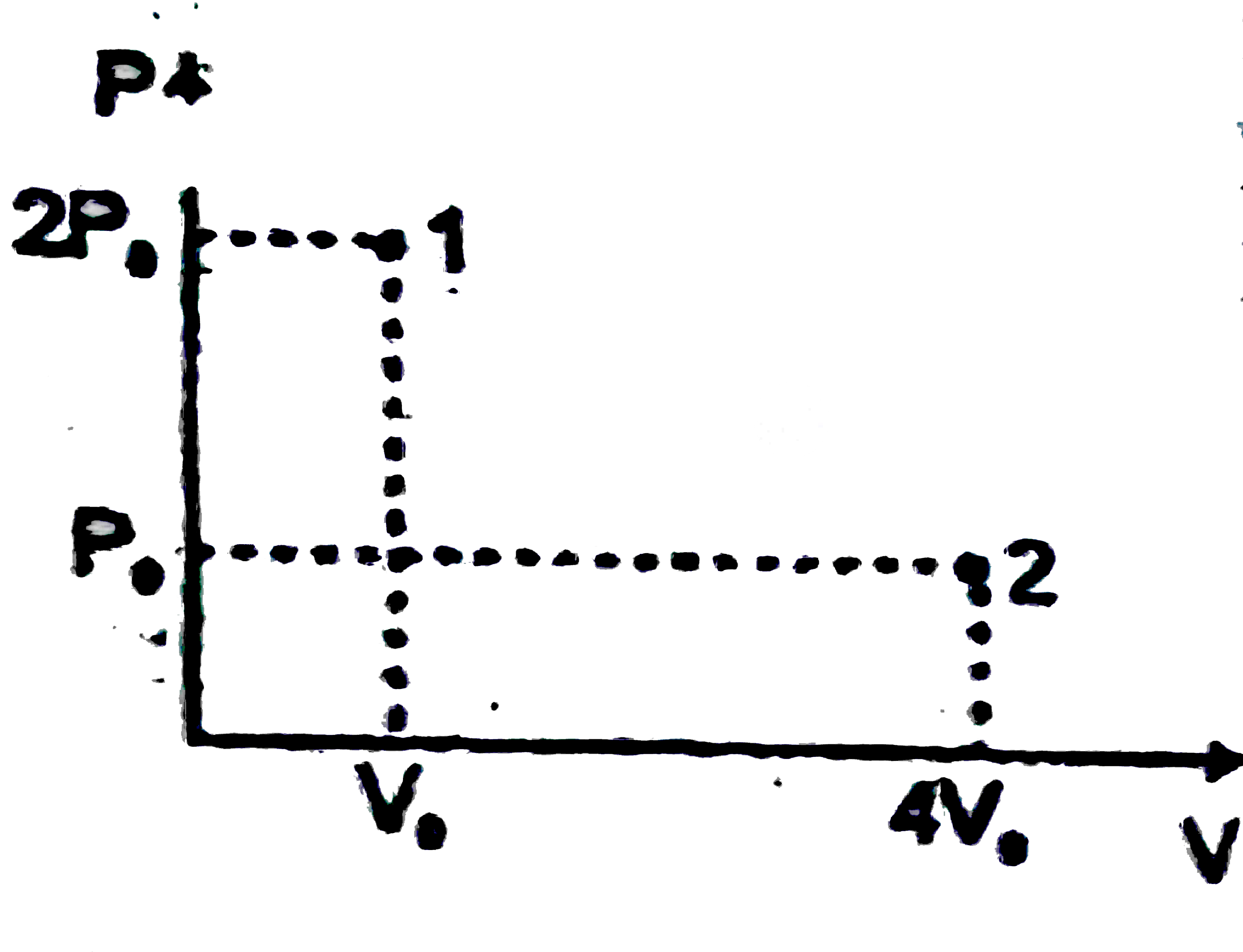Which is an irreversible process ?
Mixing of two gases by diffusion
Evaporation of water at 373K and 1atm pressure
Dissolution of NaCI in water
All of the above
To determine which processes are irreversible, we need to analyze the options given and understand the nature of each process.
1. Understanding Irreversible Processes:
- An irreversible process is one that cannot be reversed to restore the system and the surroundings to their original states without external intervention. These processes tend to increase the entropy of the universe.
2. Analyzing the First Option - Mixing of Two Gases by Diffusion:
- When two gases mix through diffusion, the process is spontaneous and occurs naturally. Once the gases are mixed, they cannot be separated back into their original states without additional work. Therefore, this process is irreversible.
3. Analyzing the Second Option - Evaporation of Water at 373 Kelvin:
- Evaporation is a process where liquid water turns into vapor. This process can be reversed by condensing the vapor back into liquid water. Since it can return to its original state without any external work, this process is considered reversible.
4. Analyzing the Third Option - Dissolution of NaCl in Water:
- When sodium chloride (NaCl) dissolves in water, it dissociates into sodium (Na⁺) and chloride (Cl⁻) ions. While the process of dissolving is spontaneous and increases the entropy of the system, the reverse process (crystallization) can occur under certain conditions. However, in practical terms, the dissolution of NaCl in water is often treated as an irreversible process due to the significant increase in entropy and the difficulty of recovering the solid salt from the solution without evaporation. Thus, this process is also considered irreversible.
5. Conclusion:
- Based on the analysis, the irreversible processes from the options provided are:
- Mixing of two gases by diffusion (Option A)
- Dissolution of NaCl in water (Option C)
Final Answer:
The irreversible processes are:
- Option A: Mixing of two gases by diffusion
- Option C: Dissolution of NaCl in water
- An irreversible process is one that cannot be reversed to restore the system and the surroundings to their original states without external intervention. These processes tend to increase the entropy of the universe.
- When two gases mix through diffusion, the process is spontaneous and occurs naturally. Once the gases are mixed, they cannot be separated back into their original states without additional work. Therefore, this process is irreversible.
- Evaporation is a process where liquid water turns into vapor. This process can be reversed by condensing the vapor back into liquid water. Since it can return to its original state without any external work, this process is considered reversible.
- When sodium chloride (NaCl) dissolves in water, it dissociates into sodium (Na⁺) and chloride (Cl⁻) ions. While the process of dissolving is spontaneous and increases the entropy of the system, the reverse process (crystallization) can occur under certain conditions. However, in practical terms, the dissolution of NaCl in water is often treated as an irreversible process due to the significant increase in entropy and the difficulty of recovering the solid salt from the solution without evaporation. Thus, this process is also considered irreversible.
- Based on the analysis, the irreversible processes from the options provided are:
- Mixing of two gases by diffusion (Option A)
- Dissolution of NaCl in water (Option C)
The irreversible processes are:
- Option A: Mixing of two gases by diffusion
- Option C: Dissolution of NaCl in water
Topper's Solved these Questions
- THERMODYNAMICSBOOK - CENGAGE CHEMISTRY ENGLISHCHAPTER - THERMODYNAMICSEXERCISE - Exercises (Single Correct)
62 Videos
- THERMODYNAMICSBOOK - CENGAGE CHEMISTRY ENGLISHCHAPTER - THERMODYNAMICSEXERCISE - Exercises (Assertion-Reasoning)
23 Videos
- THERMODYNAMICSBOOK - CENGAGE CHEMISTRY ENGLISHCHAPTER - THERMODYNAMICSEXERCISE - Exercises (Multiple Correct)
50 Videos
- STOICHIOMETRYBOOK - CENGAGE CHEMISTRY ENGLISHCHAPTER - STOICHIOMETRYEXERCISE - Archives Subjective
33 Videos
Similar Questions
Knowledge Check
Assertion : An exothermic process which is non-spontaneous at high temperature may become spontaneous at low temperature.
Reason : Spontaneous process is an irreversible process and may be reversed by some external agency.AIf both assertion and reason are true and reason is the correct explanation of assertion.BIf both assertion and reason are true but reason is not the correct explanation of assertionCIf assertion is true but reason is false.DIf both assertion and reason are false.Assertion : A quasi static isothermal expansion of an ideal gas in a cylinder fitted with a frictionless movable pistonis a irreversible process.
Reason : A process is irreversible only if system remains in equilibrium with the surroundings at every stage.AIf both assetion and reason are true and reaasons is the correct expanation of assetionBIf both assetion and reason are tur but reason is not the correct explanation of assetionCIf assertion is true but reason is falseDIf both assertion and reason are false.
Show that the entropy change in an irreversible process is always positive.
View SolutionGrowth is irreversible process found at organisation level
View SolutionStatement-1 : Work done in isothermal reversible process is more than irreversible process.
And
Statement-2 : Irreversible process is an infinitesimally slow process.
View SolutionFor an irreversible process, ΔS>0.
View SolutionFind work done in the irreversible process C→A.

View SolutionA liquid which is confined inside an adiabatic piston is suddently taken from state −1 to state −2 by a single stage irreversible process. If the piston comes to rest at point 2 as shown, then the enthalpy change for the process will be :

View Solution
